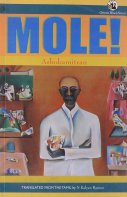Ashoka and Ashokamitran @ BYOB Party in Delhi in October 2016 (Part 1)
There was one more BYOB Party in Delhi while Jaya was there. This was co-hosted by Anu Singh Choudhary.
 Jaya spoke about John Keay’s India Discovered, a book she has mentioned before. The book is not about history, something we know little about. It’s about how history was pieced together. It all started with a Sultan in Delhi who found a pillar with inscriptions on it. He was unable to understand it and later on more and more people began stumbling on these inscriptions in other parts of India. It took the British to decipher the Brahmi script and a Sri Lankan text to piece together that the Piyadasi mentioned in the inscriptions found in different parts of the subcontinent actually referred to Ashoka.
Jaya spoke about John Keay’s India Discovered, a book she has mentioned before. The book is not about history, something we know little about. It’s about how history was pieced together. It all started with a Sultan in Delhi who found a pillar with inscriptions on it. He was unable to understand it and later on more and more people began stumbling on these inscriptions in other parts of India. It took the British to decipher the Brahmi script and a Sri Lankan text to piece together that the Piyadasi mentioned in the inscriptions found in different parts of the subcontinent actually referred to Ashoka.
Anu who blogs at http://mainghumantu.blogspot.in/2016/10/blog-post_8.html spoke about the books by Ashokamitran, a highly influential writer from Tamil Nadu who has written over two hundred short stories and two dozen novels. While Jaya started the session with history, Anu delved into how memoir revealed the social, historical and cultural aspects of an era.
 The book she discussed was Fourteen years with Boss where the author spoke about his experience working at the legendary Gemini Studios of Madras with his boss S.S.Vasan. There is no linear structure in the book as it is a compilation of essays that he wrote for the Illustrated Weekly. It was a time when entertainment and the politburos of power intersected and it was Ashokamitran’s job to manage the PR aspect. In those days, stories were not fed to the media but writers tried to understand what existed. Ashokamitran’s memoirs capture with subtle humor minute details of how an institution like the Gemini Studios was built, and talk about the insecurities the entertainment industry nurtures. Nothing is missed by his steady gaze- no actor, director, producer, director or extra is let off that easily. Ashokamitran captures the 1950s with such immediacy that it does not feel dated. He is now in his eighties.
The book she discussed was Fourteen years with Boss where the author spoke about his experience working at the legendary Gemini Studios of Madras with his boss S.S.Vasan. There is no linear structure in the book as it is a compilation of essays that he wrote for the Illustrated Weekly. It was a time when entertainment and the politburos of power intersected and it was Ashokamitran’s job to manage the PR aspect. In those days, stories were not fed to the media but writers tried to understand what existed. Ashokamitran’s memoirs capture with subtle humor minute details of how an institution like the Gemini Studios was built, and talk about the insecurities the entertainment industry nurtures. Nothing is missed by his steady gaze- no actor, director, producer, director or extra is let off that easily. Ashokamitran captures the 1950s with such immediacy that it does not feel dated. He is now in his eighties.
 Another novel by Ashokamitran that Anu mentioned was Mole, an English translation of Otran, a comical look at an International Writing Program in the American Midwest that he had attended. His humors, sharp tone and acute observations bring the 1970s in America alive. “He kept me engaged in a chapter where the theme was a lost watch. It seems irrelevant today to even talk about a watch, but he kept me intrigued with an entire chapter,” Anu said.
Another novel by Ashokamitran that Anu mentioned was Mole, an English translation of Otran, a comical look at an International Writing Program in the American Midwest that he had attended. His humors, sharp tone and acute observations bring the 1970s in America alive. “He kept me engaged in a chapter where the theme was a lost watch. It seems irrelevant today to even talk about a watch, but he kept me intrigued with an entire chapter,” Anu said.
Nostalgia works.
